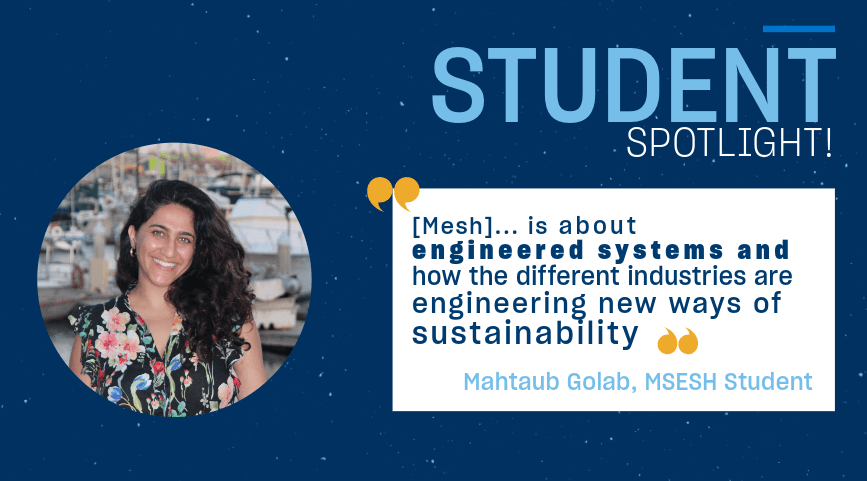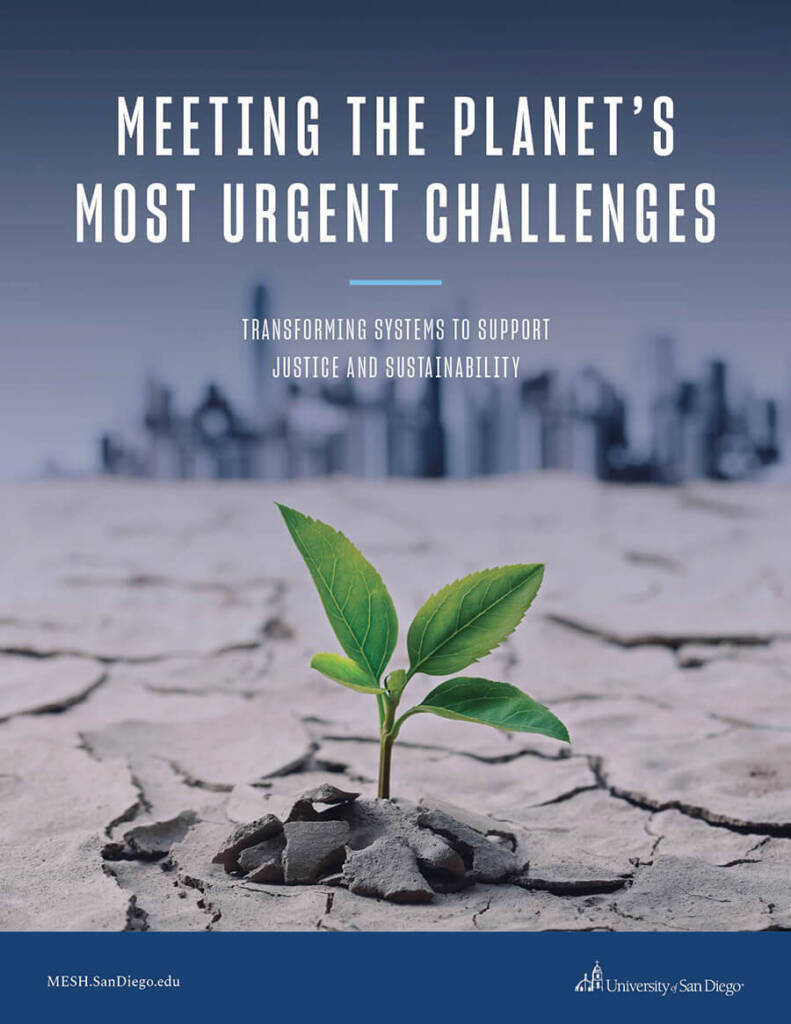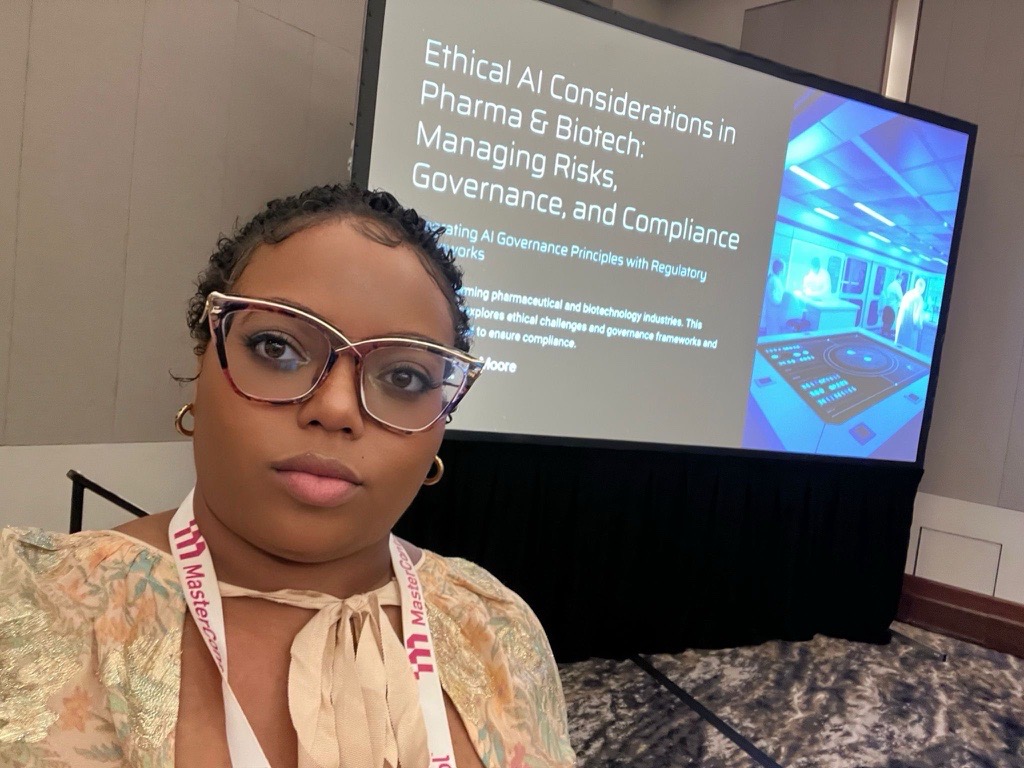What kind of program can I find that really speaks to that interdisciplinary value that I have and I know that professors of various backgrounds and other students have as well? I came across the MESH program and it was just that ‘Aha!’ moment of, ‘Oh okay. I think this is it!’
Meet Mahtaub Golab
A communications major who wanted a transdisciplinary program that would enable her to do meaningful work towards sustainability. Read why she was excited at the prospect of what MESH had to offer and what she values most about the program.
In Search of Something Greater
After seven and half years as an academic advisor and director at the Consulate of Kuwait’s Ministry of Higher Education, Mahtaub Golab felt it was time to search for something greater — both for her own career and for the causes she believes in.
When asked about her decision, she reflects, “While I loved my job and working with the students, I realized I had hit the peak title that was available to me. I wanted to feel more fulfilled and find something that would challenge me. At the same time, I saw the realities of life — the quality of people’s health and the state of the earth and where it’s going — and I just felt really frustrated with a lot of the systems in our world today. Sometimes I would feel defeated and I felt I needed to be in a space where there were like-minded people like me who wanted the same things.”
The desire for growth and search for fulfillment caused her to consider her most important values and what she wanted for her career. “Sustainability has been an important personal value to me, just learning how to live more sustainably and maybe teach others around me the importance of all of these social environmental geo-political issues that impact our sustainability. I wanted the opportunity to help people more, to do advocacy work, but also the physical labor aspect of helping people. I wanted to find a project or a group of people with whom I could help move one step closer to where they’d want their lives to be. To look to people and have them — at some point in my time with them — say, ‘Thank you. Your support really helped me.’ To me, that would be success.”
To look to people and have them — at some point in my time with them — to hear them say, ‘Thank you. Your support really helped me.’ To me, that would be success.
Finding the Perfect Fit
That search for ways to help others brought Mahtaub to consider going back to school.
“Over the years, working with international students, I got to see a variety of degrees. And that was one of the really interesting points for me to want to go back to school, because I saw a lot of new degrees that really piqued my interest.” That opportunity came with its own challenge — finding a direction.
“When it comes to areas of study, there’s so many directions sustainability can take that it’s a little bit overwhelming. There’s the corporate side of it, there’s the environmental side, the social science side, and I was just a little stuck because sustainability is so multi-industry. How do you communicate with one another and how do you figure out the missing gaps to co-create long-term, interdisciplinary solutions? What kind of program could I find that speaks to that interdisciplinary value that I have, that I can learn from professors of various backgrounds and students as well?”
To inform her search, Mahtaub researched different schools and their programs on sustainability, looking across social justice and communication departments. A novel idea would change her path completely. “During my search, I decided to peek at the engineering departments and see if maybe there was some type of environmental engineering degree that would be more geared towards arts. And through that process of looking I came across the [Master of Science in Engineering, Sustainability and Health] program and it just was like that ‘Aha!’ moment of ‘Oh okay. I think this is it!’”
Being a Transdisciplinary Changemaker
A communications major applying for a master of science degree within an engineering program may seem odd at first, but it was perfectly natural for a changemaker like Mahtaub. “I tend to draw towards interdisciplinary degrees,” she explains, “My undergraduate study program itself had an interdisciplinary focus on writing, journalism, business communication and media arts. I find a lot of value in interdisciplinary degrees.”
It’s that desire for transdisciplinary experiences that excited Mahtaub about the MESH program, and why she felt it was the right move to tackle some of the world’s biggest challenges. Thinking about those early days, Mahtaub confesses she still gets excited.
“This program, it’s title is literally MESH, it’s interdisciplinary by nature. It’s built on engineering, public health and sustainability. It’s not to say that I wasn’t intimidated by the idea of it, but I wanted to be challenged and I think in an academic setting, it’s important to be critical of one another.”
Any concerns Mahtaub had about the program were alleviated by talking with representatives from the university.
“I understood that, although this is a degree within the engineering school, it’s really much more about engineered systems and how the different industries are engineering new ways of sustainability. When I realized the program was open to people who didn’t have undergraduate degrees in engineering, I knew I wanted to apply.”
When asked about her current work in MESH, Mahtaub smiles even wider.
“This term… our focus is on sustainable food, agriculture, farming. Our last two classes were focused on public health and different engineered systems. So, already, by my third quarter, we’re studying different things on sustainability within one program. And that’s pretty cool.”
Already, by my third quarter we’re studying different things on sustainability within one program. And that’s pretty cool.
Growing as Part of a Community
Talking more about her experience as a communications major within an engineering program, Mahtaub explains why she so greatly values the MESH community.
“There is an understanding that we’re all here to learn from each other. I think going into a just interdisciplinary program, you understand that there’s going to naturally be different professional and personal backgrounds, and that you’re going to challenge each other because just maybe your formal training differs from one another.”
“For example, we’re all doing the same readings and are asked to answer the same question. But we’re all answering it based on our previous experience. So naturally, we’re coming at the answer from the lens of an engineer or from the public health perspective. And, you know, maybe the person with the arts background is able to provide a more collaborative or descriptive explanation. Or the engineers will provide more calculated, equation-based feedback. But we are learning from each other in the process.”
For Mahtaub, much of the value of the program comes from the experience itself, as much as the coursework or projects.
“We all get a better understanding of different values and opinions and ideas and where they stemmed from. Like why people think and act the way that they do and just how to communicate past your different opinions and come to a point where we collectively agree on something and now we can go forward and actually do the assignment or project. It’s humbling, knowing that your opinion is not always the right one, even if you have good intentions.”
Overall, she knows that the experience will get her to where she wants to go.
“I would love the confidence knowing that I could walk into a room of different sustainability professionals of all different fields, and be able to hold a conversation with each of them, to a degree of what’s happening in their field. Knowing that I could be that bridge to say, ‘Okay, you’re focused on farming food, you’re focused on public health, you’re an engineer, you’re focused on corporate tech and together you all have wonderful ideas. Maybe I can be the agent that connects all of us together.’ In general, I’m comfortable speaking with people, so to have that technical knowledge combined with my communication skills is really valuable.”
“Plus, our classes are a great time. Sure, we’re addressing really serious topics to create really serious solutions. But we’re having a lot of fun too. Above everything else, that’s really great about the academic experience.”
We’re addressing really serious topics to create really serious solutions. But we’re having a lot of fun too.
On Her Experience as a Nontraditional Non-Engineer
Going back to school can be challenging, and even more so when attending a transdisciplinary program such as MESH.
“Even though I was excited, I was intimidated,” Mahtaub admits, “I had a moment of imposter syndrome of like, ‘Can I actually do this? Did my excitement surpass my actual ability? I don’t have an engineering background, am I going to struggle?’”
Thankfully, her concerns were almost immediately alleviated.
“In our introductory course it was made very clear to me that, while there are certain technical things that we would learn, all of that information would be provided by the instructor. There was no expectation that students would come in with a full understanding of calculus or how to solve mathematical engineering equations or structural information. That’s not the point of the program.”
It was also immediately clear that everyone, regardless of their background, was on the same page.
“In our introductions, the engineers explained they were drawn to this program because… they all felt there was something missing, there was something that their own field was not addressing. And so, [they] came in wanting to be in a space where they could learn from others and that was really cool. It was a sense of collaboration right from the beginning that I don’t know I would necessarily feel if I entered a program that was strictly focused on something like environmental engineering.”
When asked if she was comfortable with the challenge of being in a transdisciplinary program, Mahtaub affirmed it was everything she was looking for. “You know you’re going to be challenged. But it’s that gap between disciplines that I think is missing from sustainability practices. Sometimes we’re afraid to critique each other, because it’s hard to have someone be critical of something you value. What I wanted to find was not just the critique, but the solutions afterward. Because you can’t create solutions if you don’t address what’s wrong, and you can’t address what’s wrong if you can’t be open and critical of each other. And I feel that all the professors and students are respectful of that. Within my cohort, and all the MESH cohorts, there’s an understanding that we’re all there to learn from each other.”
For Mahtaub, it’s that collaboration and co-learning that makes the MESH program unique.
“I wanted a space where there was an opportunity for limitless growth — in whatever direction that might be. What I love about this program is that I’ve had to learn a lot of valuable communication skills to problem solve with others. And what I’m continually finding with this program is it’s geared to show us how to communicate and co-create solutions to problems that can produce results.”
Within my cohort, and all the MESH cohorts, there’s an understanding that we’re all there to learn from each other.
p




